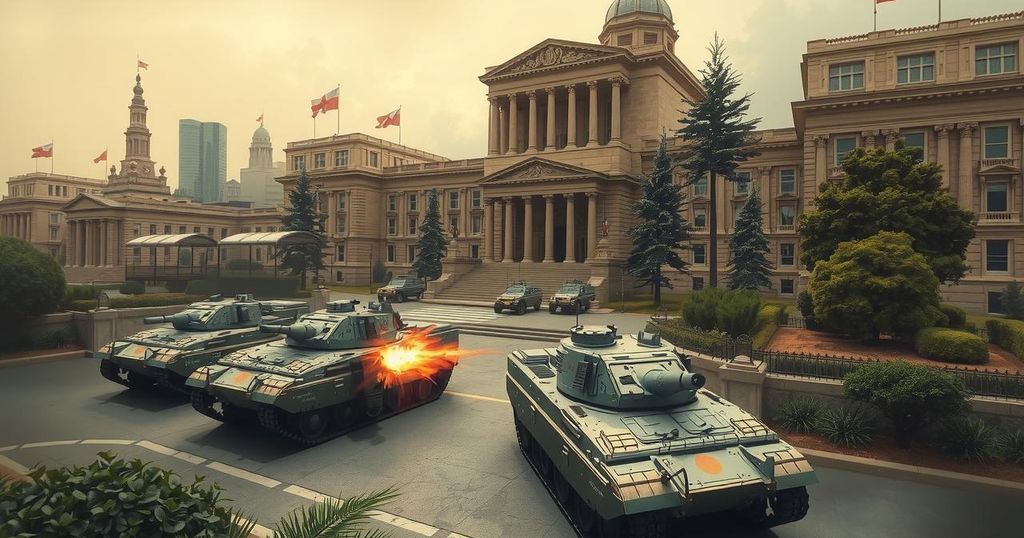Sudan’s Army Secures Presidential Palace, Challenges RSF Control

Sudan’s army has regained the presidential palace in Khartoum, marking a major victory against the Rapid Support Forces (RSF). Civilians have welcomed the army’s return, yet the RSF maintains control in parts of the country. Analysts warn of increasing fragmentation in Sudan as both sides continue military hostilities, exacerbating the humanitarian crisis.
The Sudanese army has successfully regained control of the presidential palace in Khartoum, marking a significant triumph in its ongoing conflict with the Rapid Support Forces (RSF). This victory, celebrated nationwide, represents the army’s most noteworthy achievement since it initiated a counteroffensive against the RSF in September 2022.
Although the RSF continues to maintain control in certain areas of southern Khartoum, its hold on the capital has waned significantly following the outbreak of civil war in April 2023. This military development occurs shortly after RSF leader Mohamed Hamdan “Hemedti” Dagalo urged his fighters in a video not to relinquish the palace. Civilians have largely embraced the army as liberators, despite isolated reports indicating human rights abuses by army-aligned militias during RSF withdrawals.
The RSF has been implicated in numerous atrocities, particularly in Khartoum, where a United Nations report estimated the detention of over 10,000 individuals by RSF fighters. A young Sudanese man, Yousef, remarked, “Whenever the army arrives, people become happy because they feel safer. Even the children are joyous.”
Analysts express concern that the army’s recapture of the presidential palace could lead Sudan towards de facto partition. The RSF supports a parallel government and continues to dominate four of five regions in Darfur. Recently, it seized the strategic city of al-Maliha in North Darfur but struggles to secure el-Fasher, its capital. Expert Sharath Srinivasan likened the situation to Libya’s divided governance, indicating an increasing geographic bifurcation within Sudan.
The army has consistently refused peace talks with the RSF, intent on reclaiming the entire nation. Meanwhile, the RSF has been criticized for using diplomacy to camouflage its military enhancements. Despite signing a supposed peace agreement with an anti-war coalition, Hemedti has continued military operations throughout various regions. Both factions have vowed to persist in combat, raising concerns about escalated violence in Kordofan and Darfur.
Moreover, the resurgence of conflicts may also erupt within Khartoum, exacerbated by an influx of advanced weaponry. Following the army’s reclamation of the presidential palace, a drone strike in the vicinity resulted in the tragic deaths of three journalists. The ongoing turmoil poses dire humanitarian threats, with tens of thousands dead, countless missing, and millions facing severe food insecurity.
The retaking of the presidential palace by the Sudanese army signifies a crucial military victory against the RSF, despite the lingering presence of the RSF in other regions. The potential for Sudan’s de facto partition raises significant concerns for its governance and humanitarian situation, as both factions remain unwilling to pursue peace negotiations, leading to heightened violence and suffering among civilians. The ongoing conflict signals a deepening crisis with severe implications for the future stability of Sudan.
Original Source: www.aljazeera.com








